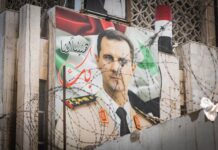Kashmiri liberation activist, Rabia Khan writes that once NATO troops withdraw from Afghanistan, the focus will return to the partition of Kashmir.
As 2014 nears and the withdrawal of NATO combat troops from Afghanistan is imminent, some South Asian commentators claim that India and Pakistan’s focus will shift back to the troubled region of Kashmir.
Kashmir is the northern-most region of the Indian Subcontinent, on the foothills of the Himalayas. Kashmir has been termed “disputed territory” for the last six decades, as it is territory claimed by both India and Pakistan.
A sparsely populated area known as Aksai Chin is under Chinese control, which constitutes approximately ten percent of the territory of Kashmir. A formerly independent state, Kashmir was divided between India and Pakistan during the 1947-48 war over the region.
The United Nations (UN) de facto border that split the region in two is known as the “Line of Control” and both Indian and Pakistani troops are stationed along this border.
History
In 1585 Kashmir came under the rule of Mughal Emperor Akbar. Once Akbar’s rule ended, Kashmir was subsequently subjected to the rule of many ruthless leaders governing the princely state for centuries.
Subscribe to our newsletter and stay updated on the latest news and updates from around the Muslim world!
This included the Pashtun Durranis, as well as the Sikh Punjabis and the Hindu Dogras who ruled over Kashmir. In 1947 when the British were planning to leave India and plans for a separate homeland for India’s Muslims were being finalised, independent princely states like Kashmir were given the opportunity to decide their fate.
Hari Singh, the last Hindu Dogra ruler was adamant that Kashmir should stay as an independent state, as he would have absolute power over the territory. He was a callous ruler despised by both Kashmir’s Hindu and Muslim population, as he was complicit in the persecution of natives. His great-grandfather, Gulab Singh purchased Kashmir from the British for 7.5 million rupees in 1846, after the British captured the territory after winning the Anglo-Sikh war of 1845.
1947-2013
22nd of October 1947 was a fateful day for Kashmir, as Pakistani Pashtun tribesmen infiltrated the region, which led Hari Singh to declare Kashmir territory of India under a legal document known as the “Instrument of Accession” on the 26th of October.
Indian troops entered the region the following day, and on New Year’s Eve 1948 after 14 months of fighting, the first Indo-Pak war of 1947-48 came to an end, due to a UN ceasefire arrangement. The ceasefire led to the formation of the Line of Control.
2013 has been one of the most deadly years since the turn of the century with regards to deaths of soldiers on both sides of the Line of Control. The treacherous Siachen region saw several skirmishes and over a dozen deaths.
The deaths resulted in many articles being written about the “Kashmiri issue”, and the region being dubbed by some as the “forgotten conflict”. This may have been seen as a step in the right direction in educating the wider public about Kashmir; but this could not be further from the truth.
Indo-Pak compromise or Kashmiri self determination?
Time and again commentators talked about the compromise India and Pakistan would have to make in relation to Kashmir in order to improve bilateral ties, but there was no mention of the will of the Kashmiri people. It was hard to read column inches dedicated to what the occupying forces want in the region when the people suffering on the ground were ignored in their entirety.
On the part of India, references made to the instrument of accession are considered invalid by most Kashmiris, as Hari Singh was never chosen by the people as their leader. Likewise, Pakistan’s belief that because Kashmir has a predominantly Muslim population it has legitimacy over the state, are just as unfounded.
The history of Kashmir throughout the centuries has shown how Muslims and Hindus had leaders of both faiths and lived together in relative peace and harmony. For a Kashmiri, the use of Kashmir as a political ploy is nauseating and an insult to the people’s suffering and sentiments.
Due to Kashmir’s ethnic and religious diversity, the solution to the conflict in Kashmir is not black and white. However one thing is certain; the will of the Kashmiri people should be at the forefront of any discussion, and any serious negotiations on Kashmir needs to focus on its people and what they desire.
It is not for India or Pakistan to decide the fate of Kashmir; it is solely for the Kashmiri people to decide their fate.










![The Taliban’s Road To Success [Short Film]](https://5pillarsuk.com/wp-content/uploads/2024/11/Kabul-roadworks-thumbnail-218x150.png)









